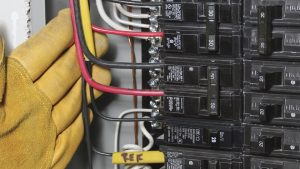Solar energy has become one of the main sources of renewable electricity worldwide, and solar panels are an essential part of this transition. However, they are not only helping to reduce dependence on fossil fuels and improve energy efficiency, but they are also transforming the electric industry in a number of ways.
Firstly, solar panels allow for greater decentralization of electricity generation. Traditionally, electricity has been generated at large power plants and transmitted through transmission lines to consumers. However, with solar panels, consumers can generate their own electricity at their homes or businesses, reducing the need for large power plants and transmission lines. This decentralization of electricity generation has several benefits, such as reducing the risk of blackouts, increasing energy security and making the grid more resilient to extreme weather events. Additionally, it also allows for a more efficient use of resources and reduces energy losses due to transmission and distribution.
Secondly, solar panels are also contributing to greater flexibility in the electric grid. The electricity generated by solar panels is intermittent, meaning the amount of electricity generated varies depending on the level of available sunlight. However, this is being addressed with the development of energy storage systems, such as battery storage, which allow for electricity to be stored during periods of overproduction for use during periods of scarcity. This increased flexibility in the electric grid is helping to integrate more renewable energy into the grid, and is allowing for a more efficient use of resources.
Thirdly, there is an increase in the utilization of solar panels in mobile applications such as vehicles or boats, which allows for greater freedom and autonomy regarding energy generation. This is a relatively new application of solar energy, but it has the potential to significantly reduce dependence on fossil fuels in the transportation sector. Electric vehicles powered by solar energy are becoming more common, and solar panels are being used to power boats and even airplanes.
Finally, solar panels are also having a positive impact on the economy. The increasing use of solar energy is creating jobs in the manufacturing, installation, and maintenance of solar panels and energy storage systems. It is also reducing the costs of electricity for consumers and businesses, which has a positive impact on the economy as a whole.
In summary, solar panels are transforming the electric industry in several ways. They are allowing for greater decentralization of electricity generation, greater flexibility in the electric grid, an increase in the utilization of mobile applications, and having a positive impact on the economy. As technology continues to evolve, it is likely that we will see even more positive impacts of solar panels on the electric industry in the future. With the right policies and incentives, solar energy could play an even bigger role in meeting our energy needs, and reducing our dependence on fossil fuels.


